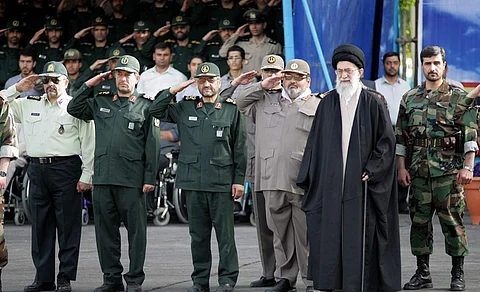

One week into Israel’s military campaign against Iran, expectations among Iran hawks in Israel, the U.S., and within the exiled Iranian opposition that the Islamic Republic would quickly unravel have not materialized. In fact, Israeli officials and prominent opposition figures now acknowledge that the Iranian government appears to be growing stronger amid the conflict.
Following the opening Israeli strikes on June 13, Israeli Prime Minister Benjamin Netanyahu issued an appeal to the "proud people of Iran," urging them to rise up against what he called an "oppressive" regime, adding, “It has never been this weak. This is your chance to rise and make yourselves heard.”
On the same day, Reza Pahlavi—the exiled son of Iran’s last monarch, Mohammad Reza Pahlavi—used his Telegram channel to call on Iranian civilians, military forces, police, and security services to “separate their path” from the Islamic Republic and “join the people,” asserting that the regime “must come to an end.”
Yet, despite these appeals, Israeli officials quoted in local media by the end of this week admitted that there were no indications of internal destabilization in Iran. Instead, they observed the opposite: the Iranian state has consolidated support among its population, including traditionally restive regions and minority communities.
CNN, in a report earlier this week, interviewed several Iranians inside the country and found no support for Netanyahu’s appeal or any indication of an uprising. Their reporting concluded that the chances of a revolt, especially in alignment with Israel, were remote.
Prominent U.S.-based Iranian opposition figure Masih Alinejad criticized Netanyahu’s approach, arguing that the Israeli attacks had backfired. “He ruined all of our plans,” she said, lamenting that the strikes had bolstered national unity within Iran and marginalized the opposition’s influence.
Friday saw demonstrations in cities across Iran, including in the Kurdish-majority west, with crowds showing support for the Islamic Republic. Earlier this week, Molavi Abdulhamid, the top Sunni cleric representing Iran’s Baloch minority, declared his allegiance to the state: “We are loyal to the Islamic Republic.”
Though both the U.S. and Israel have officially maintained that the objective of their policy is to prevent Iran from acquiring nuclear weapons, critics note that past American interventions in the region—from Iraq to Libya and Syria—have often pursued regime change as the ultimate goal. That context has led many Iranians, even those critical of their government, to close ranks in the face of perceived external threats.